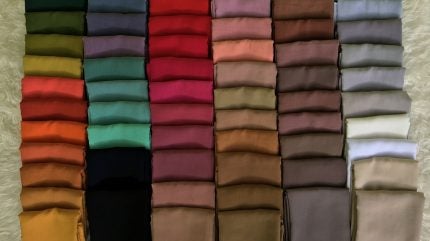
James Cropper, an advanced materials and paper and packaging company, has developed a technology capable of converting polycotton waste into high-quality paper.
The innovative process is designed to tackle the significant issue of textile waste in the UK, where more than 200,000 tonnes of such waste is generated annually, with only approximately 10% currently being recycled.
The company’s patented proprietary technology represents a significant advancement in sustainable manufacturing.
It also aligns with James Cropper’s commitment to creating a circular economy by diverting textile waste from landfills and incineration.
This initiative follows the company’s history of transforming post-consumer waste into valuable products, including its Cupcycling technology for upcycling used coffee cups and the Rydal project that incorporates used jeans into recyclable paper for packaging.
A successful pilot project for this development funded by Innovate UK involved sourcing polycotton waste from commercial laundries across the country.
The hotel industry, in particular, has been in search of a sustainable solution for its bed sheets, which are typically incinerated after only ten uses.
James Cropper’s technology offers an alternative to this by recovering cotton fibres without relying on aggressive chemistry, thus preserving the integrity of the fibres.
James Cropper’s early lab trials showed successful recovery of up to 98% of cotton fibres.
James Cropper R&D programme lead Joanne Storey said: “At James Cropper we love a challenge and providing a sustainable solution to the waste generated by the UK textile industry was just that.”
Looking ahead, the company plans to scale up the process, seek out collaborators, and assess the potential for broader industry application.
“Low-value waste materials such as hotel bed sheets can now become valuable, recyclable paper-making fibres. And our ambitions don’t stop there. We want to explore how this regeneration technology could transform supply chains of a range of industries,” Storey added.
In February this year, James Cropper partnered with Bruichladdich Distillery, a Scottish single-malt whisky brand, to introduce a sustainable outer wrap to the distillery’s products.



